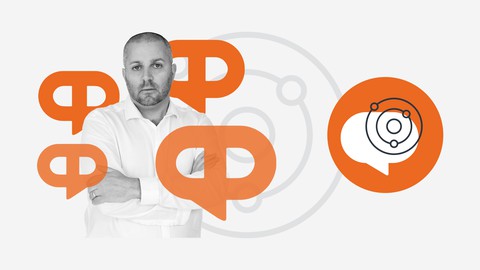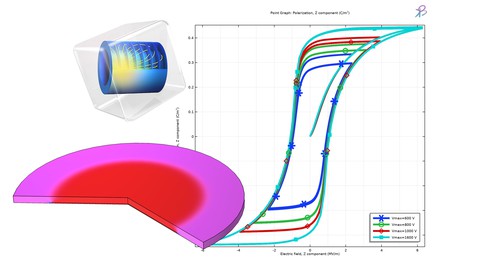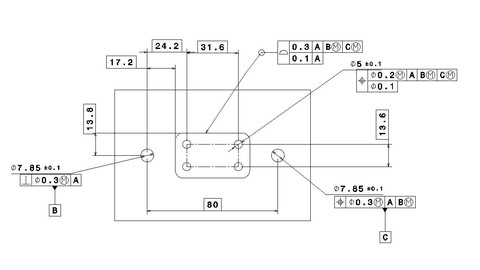Diploma Course in Modern Applied Psychology (DiMAP.)
Loại khoá học: Marketing Fundamentals
Learn the science of human behavior and how to apply it to everyday life with this in-depth guide to applied psychology.
Mô tả
Are you interested in gaining a better understanding of human behavior? Psychology is the study of the mind, one of the most complex and complex machines on our planet. Our thoughts, feelings, habits and behaviors are generated by our mind.
Through the use of powerful principles from many of the major thinkers and theories, and explanations that are easy to understand, this Diploma in Modern Applied Psychology training course demystifies an extensive range of hard-to-understand concepts and illustrates how they have shaped our understanding of the human mind.
Coverage of all schools of psychology is included, including cognitive, humanistic, social, and behavioural psychology, making the course ideal for anyone fascinated by psychology as a general topic. In applied psychology, psychology-based concepts are put into practice and real-world outcomes are prioritized over abstract theories and opinions.
Applied psychologists study human behavior to learn more about how the mind works. Although the mind cannot be seen directly, everything we do, think, feel, and say is affected by it. Most people are familiar with foundational psychology (pure research); however, it's not until this research turns into something useful that psychology becomes relevant.
Applied Psychology allows you to understand how those around you think, what kind of feelings they experience, how they act and communicate, and what motivates them. As individuals, we all use psychology every day when interacting with others, yet the majority of people are not aware of the psychology behind their choices and behaviors.
In the years since Wilhelm Wundt opened the first experimental psychology lab in 1879, a great deal has been learned about the mind and its behavior. This unique training course introduces you to the seven fundamental schools of psychological thought, equipping you with the knowledge to assist and spark positive change in people's lives.
Throughout this Diploma in Applied Psychology, you will learn how to:
Identify the motivating factors behind all patterns of human behavior.
Make smarter, more calculated decisions by learning from your past.
Use your knowledge to solve problems that directly affect people's lives.
Improve your ability to reason and regulate your emotional responses.
Make more well-informed judgments that are in line with your priorities.
Separate behaviour and personality from the heart of human identity.
Accurately predict how people will act, perceive, reason and behave.
Build stronger connections and more genuine relationships with people.
Raise your mind like a philosopher and interpret life's events accurately.
And much, much more.
Those who study Modern Applied Psychology are likely to work in a range of careers, from education, to coaching and medicine, to social enterprises, politics, and entrepreneurship. This is a perfect introduction to the psychology of human behaviour and is filled with intriguing cases and ideas that will give you a broader perspective on how your mind works.
Psychologists strive to influence people in a way that leads to positive and enduring changes in their lives. The aim of the curriculum is to assist you in laying a solid foundation on which you may build your continuing studies in Applied Psychology (and its associated range of supportive disciplines; for example, coaching, CBT, counselling, etc.).
If you want to make some significant improvements in the quality of your day-to-day life, whether for you personally, for the benefit of your family, friends, co-workers or community groups, enrolling in this Diploma in Modern Applied Psychology training course will influence how you understand yourself, other people that you know, and the world more accurately.
Individuals seeking to improve their relationship with themselves, eliminate self-doubt, and learn how to interact with others more effectively are also provided with personal growth strategies. The course will provide you with a range of innovative strategies for evaluating your beliefs, gaining confidence, and adopting a genuine attitude of empowerment.
Everyone who is serious about furthering their professional or personal development should take the course." - Maxwell M. Smales
This training is part of a larger curriculum of professional development training resources, designed by Kain Ramsay Ltd, and hosted within the Achology community peer-learning environment. The training course is accompanied by a 30-day money back guarantee, so if you're not happy with the format, you can get your money back - no questions asked.
Bạn sẽ học được gì
Identify the motivating factors behind all patterns of human behavior.
Make smarter, more calculated decisions by learning from your past.
Use your knowledge to solve problems that directly affect people's lives.
Improve your ability to reason and regulate your emotional responses.
Make more well-informed judgments that are in line with your priorities.
Separate behaviour and personality from the heart of human identity.
Accurately predict how people will act, perceive, reason and behave.
Build stronger connections and more genuine relationships with people.
Raise your mind like a philosopher and interpret life's events accurately.
And much, much more.
Yêu cầu
- To enroll in this course, no prior experience or education is required.
- Students are encouraged to take notes (for self-reflection purposes only).
- Students can access this training from anywhere with an internet connection.
- You can also listen to the MP3 version if you prefer to learn on the go.
- You can access your training course on a tablet, smartphone, or desktop.
- Additional PDF materials are provided to enhance your learning experience.
Nội dung khoá học
Viết Bình Luận
Khoá học liên quan

Đăng ký get khoá học Udemy - Unica - Gitiho giá chỉ 50k!
Get khoá học giá rẻ ngay trước khi bị fix.


















Đánh giá của học viên
Bình luận khách hàng